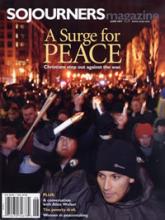Christian Aid's 2007 report "A Rich Seam: Who Benefits from Rising Commodity Prices?" indicates that mining companies that extract raw commodities—such as oil, nickel, or copper—turn the "trade" relationship between the mining industry and particular countries into one giant sucking sound. This is significant, since extractive industries are heavily concentrated in developing countries that are dependent on taxes and wages for a stable economy. The Catholic Bishops' Conference of the Philippines denounced predatory mining acts and open-pit mining in a recent pastoral letter: "Allowing the interests of big mining corporations to prevail over people's right to these sources [of food and livelihood] amounts to violating their right to life."
- $72 million: Loss to the Bolivian economy, 1999 to 2004, after privatization of the oil and gas sector.
- n $63.4 million: Unpaid mining royalties owed to Zambia from 2002 to 2004.
- 64: Percent of Zambian population that lives on less than $1 a day.
- $912.4 million: The mining industry's revenue in the Philippines in 2005.
- 1.9: Percent of taxes the mining industry paid to the Philippine government in 2005.
- 0.36: Percent of Philippine workforce employed in the mining industry.
Source: "A Rich Seam: Who Benefits from Rising Commodity Prices?" (Christian Aid, 2007); "A Statement on Mining Issues and Concerns" (Catholic Bishops' Conference of the Philippines, 2006).
Read the Full Article
